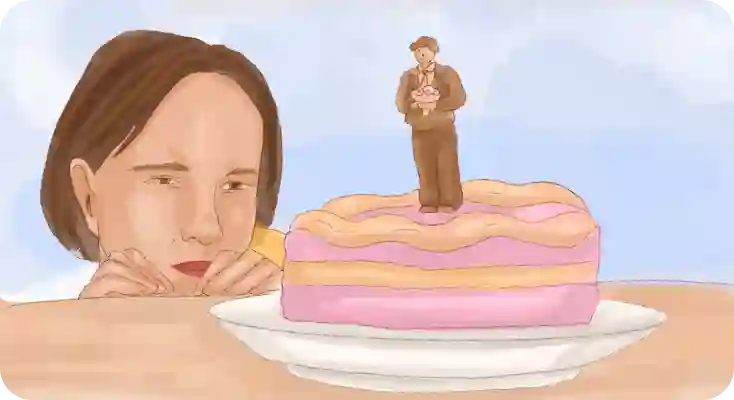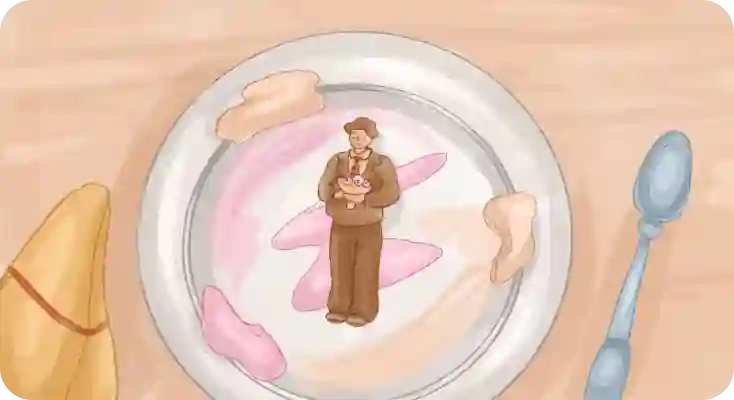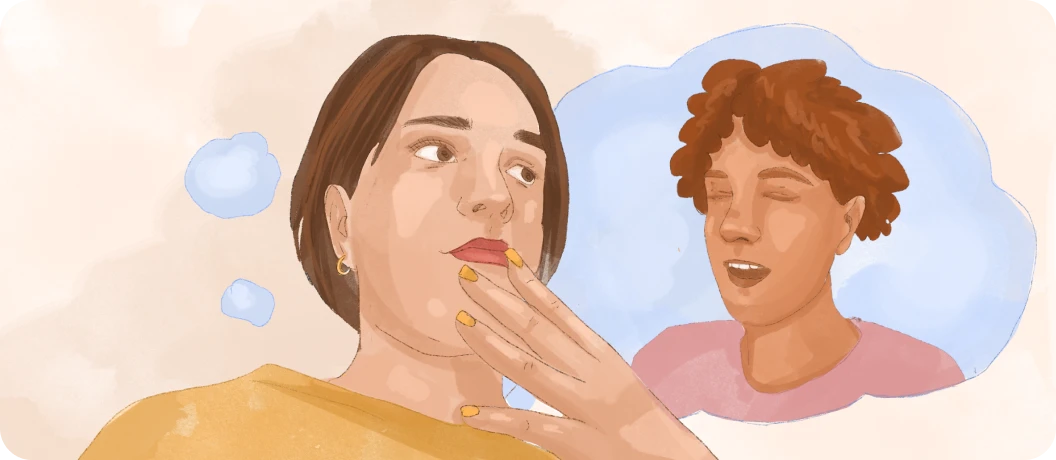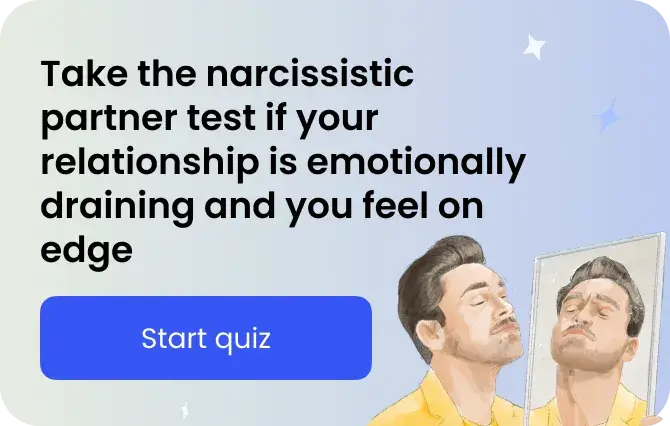Hello, I am Emily Mendez, a mental health copywriter and former psychotherapist. In this article, I will share with you my insights on what to do if you feel like you hate your husband. These insights come from my educational background in counseling as well as many years in clinical practice.
Help! I hate my husband! Can you relate? If so, I assure you that you’re not alone in these feelings. As a former therapist, I’m spilling on what to do when you hate your husband.
First, check if your husband is narcissistic and it’s poisoning your relationship.
The “I Hate My Husband Quiz”
Why do I hate my husband? You may be wondering why someone you deeply loved is now repulsive to you. This quiz will help you start to uncover the reasons why your feelings have changed.
These five self-reflecting questions can help you explore the roots of your feelings. Remember to be honest and open with your answers; feeling how you’re feeling is okay.
1. True or False: I resent my husband.
If true, you may feel that your husband has held you back or not supported you when you need it. Maybe you remember a time when you felt your needs came second.
2. True or False: I want to leave my husband but have nowhere to go.
Is the only thing keeping you with him your financial or logistical ability? It may be time to start making an exit plan with help from friends, family, or a therapist. You can then decide if you want to stay or leave. It is easier for us to make rational decisions when we feel we have a choice.
3. True or False: I resent my husband for not being a good provider.
If true, consider why your husband not being a good provider makes you feel resentful. Does it make you feel vulnerable? Was there a time in childhood when a parent didn’t fulfill your needs? Do you feel that your husband takes advantage of your hard-working attitude?
4. True or False: My husband doesn’t care when I cry.
If true, consider if your husband is being intentionally cold or simply lacks the emotional awareness to react tenderly. If you suffer from attachment trauma, your husband’s nonreaction could trigger abandonment fears. Your body may be reliving a time when adults ignored your needs.
5. True or False: I hate being married to my husband because I feel like I’ve lost myself.
If true, it’s time to consider how much of the resentment you’re feeling is justified. Resentment in marriage often forms when we feel like we’ve given more than the other person. Your husband may not be aware that the sacrifices feel lopsided. Therapy can be a great place to voice your feelings.
What is Behind the Feeling of “I Hate My Husband”?
So many things! When you hate your husband, it may be related to actually hating your marriage circumstances. You may hate the “disconnection” that you’re feeling at this point in marriage. Or maybe your husband is “hard to love” because he’s acting selfishly.
As we change and age, our values can also shift. Qualities that we found attractive when we first met can become grating. We can also change and become different from who we once were, and we may now be attracted to different things.
However, my experience as a therapist has shown me that resentment is often the #1 reason why women hate their husbands. It’s a paper-thin line between resentment and hate. Let’s talk about that next.
I Resent My Husband vs. I Hate My Husband
Saying “I hate my husband” might feel cathartic. But oftentimes, most of us don’t mean it. Hate is a powerful emotion. It means that we feel the absence of love.
Women who say, “I hate my husband so much,” often mean, “I hate being married to my husband.” This feeling of “I dislike my husband” could be due to the relationship dynamics or circumstances, which can then lead to resentment.
The difference between resentment and hate is that resentment is usually tied to circumstances. That resentment can then lead to a general feeling of hate.
For example, feelings of hate may bubble up because we feel unheard or unseen. We may feel that the partner we’ve been with for years still doesn’t “know” us. Maybe they don’t pick up on our cues for connection. Or maybe they don’t value what we value or prioritize what we prioritize.
These dynamics can fester and, without communication and resolution, eventually lead to hate—or, at the very least, feelings of dislike.
Why Do I Hate My Husband?
I know I said that most women don’t hate their husbands, but I’m still going to share the 10 reasons why they feel like they do. You might see yourself reflected in this list if you can’t stand your partner.
1. You feel like the burden always falls on you
Women still handle most of the domestic labor. That means they’re in charge of handling appointments, dishes, laundry, and bringing the dog to the vet—all after working a full day. Even women who stay home still feel dehumanized by a lack of domestic support.
According to a recent study, inequities in the division of household labor are linked with lower sex drive in women. It’s not just you! Women feel less attracted to husbands who don’t help out at home.
Let’s talk about why this might be. Several things are at play. First, burnout caused by doing it all yourself might be making you resentful of him. You simply don’t have the energy to “feel a spark.”
Second, your hatred is being fed because you feel the situation is unfair. It’s normal to feel spiteful toward someone who is doing you wrong.
Good news from a therapist! This situation is fixable. Setting up expectations can be easy if you’re both open and willing. In most cases, it’s just a matter of having an honest, judgment-free conversation.

2. His family is wearing you down
I hate my husband’s family! Can you relate? Many people don’t fully understand the idea that “his family is your family” when walking down the aisle. But how does this lead to hating your husband?
Well, hating your spouse because of his family can happen in several ways. First, he may not be holding up boundaries. Maybe his family is popping over or demanding your time.
Or maybe he’s sharing too much about your relationship with his mom or siblings. This can leave you feeling annoyed and betrayed.
Second, he may prioritize time with family over you. Maybe you’re feeling neglected and hate that you can’t seem to make your own traditions and memories without his family involved.
Lastly, you may simply be realizing that he is a “product of his family”. If you’re not a fan, the realization can be harsh once the butterflies of “early love” wear off.
3. He’s triggered your fatherhood wounds
Let’s entertain the idea that it’s not all him. The cliché of “daddy issues” grinds my gears as a therapist. It’s a lazy and simplistic way to explain complex emotions.
However, I can tell you 100% that father-child relationships impact future marriages. If “I hate my father” is something you’ve thought, it needs to be explored. We often replay past dynamics over and over.
You may be trying to heal disconnection or attachment trauma from your dad with your partner. This can look like:
- Constantly testing him by picking fights or making accusations.
- Making him responsible for your feelings at all times.
- Pushing him away when you feel vulnerable.
- Expecting him to cheat, leave, or betray you.
- Clinging, snooping, or being anxious and angry when he wants time alone.
- Being mad when he doesn’t read your mind.
If your father was absent, you may deal with fear of abandonment. This fear can come out in several ways. Some women will push men they love away in order to “hurt them first.”
Others will cling so tightly that their partners feel suffocated. The anger you might feel about their reaction can make it feel like you hate them.
Maybe you hate your husband because you’re expecting the impossible. Maybe you’re doing all of this to see if he’ll stay! But remember, he can’t heal your past hurt or neglect from a father.
4. You feel like he doesn’t take care of you
A woman saying, “I resent my husband for not working,” is something I have seen many times as a therapist. There’s nuance here. Not every woman is resentful if they are the sole or leading provider. For those who do care, reversing traditional roles can be a big deal.
The root of being angry at a husband for not working is often vulnerability. At your core, protection, and sacrifice are signs of love.
You may also feel like he’s taking advantage of you. Who wouldn’t feel like they hate their husband if they came home to dirty dishes in the sink and video games on the screen?
Boundaries and expectations are everything here. I suggest:
- Discussing expectations for the amount of paid work each partner will do.
- Deciding if finances will be shared or split.
- Assigning specific household duties to each partner.
Don’t dismiss the idea that he may treat you poorly because of the dynamic. Research shows that men feel worse about themselves when their female partners succeed. So, he may be disconnecting or putting you down to feel better.
5. You feel like you’re bored with life
“I think I hate my husband because I’m sick of him.” Sound familiar? But what if you’re just bored with life? I’ve seen it a lot in my practice. Women sometimes confuse being bored within a marriage with disliking their husbands.
It’s up to you to plot your course for a more adventurous life. That can mean your own hobbies and professional aspirations, as well as spicing up your bond!
Did you know that planning date nights is actually a skill? Researchers found that some people might be more adept at planning dates that promote closeness. People who plan exciting dates experience more growth and closeness with their partners.
Poor date planning could cause a lack of spice and adventure. You or your husband might simply lack the skill. Why not collaborate on planning some dream dates together?

6. You have unrealistic expectations of marriage
He isn’t Prince Charming. That’s to be expected! Some women resent their partners because love didn’t save them from real life. They may believe that true love should heal every wound and fill every emptiness.
When that doesn’t happen, they can end up resenting their spouses. “I don’t like my husband because he doesn’t fulfill my expectations for a perfect life.” This may be what you’re really feeling.
7. Helplessness
“I want to leave my husband but have nowhere to go.” Women in this scenario often resent their husbands because they feel helpless. Maybe you gave up your career to raise the children. Maybe you moved across the country to be with him. Maybe you’re feeling stuck with no way out.
Feelings of “I hate my husband but can’t leave” can often be linked with feelings of powerlessness. You might think that you hate your husband because you feel trapped and helpless.
8. Infidelity
“I resent my husband for cheating.” It’s absolutely natural to feel this way when there’s a betrayal of trust. Unfortunately, research shows that not everyone who cheats feels bad about it. You may be picking up on that if moving forward with forgiveness feels hard.
Cheating changes us. It makes us feel insecure. It makes us rethink every interaction we’ve had with a partner. You are asked to “trust” as you move forward with no guarantee that it won’t happen again. No wonder you might resent your partner!
Partners who choose to stay after infidelity need a therapeutic space to work out their emotions.
I’d recommend couples therapy paired with your own individual therapy. The first step is truly making sure you want to stay. The next is learning how to stay without hating your partner.
9. He’s embarrassing you
“I can’t stand my husband when we’re in public.” This is more common than people realize. Some women feel that their husbands act rudely in public. Others feel that their husbands are too loud or boisterous when socializing. He may also:
- Treat waitstaff rudely.
- Say rude or crass things to friends or family.
- Not hold doors open for you in front of others.
- Not talk to others in social circumstances.
- Stare at his phone instead of being present.
While this seems like a minor problem, dreading being out with your husband is toxic for your bond.
10. He doesn’t have the tools to emotionally fulfill you
“My husband hurt my feelings, and I can’t get over it.” If this is the case, your husband may not be on the same emotional wavelength.
One of two things might be true. The first could be, “My husband has no respect for me or my feelings.”
The second might be that “my husband simply doesn’t grasp my emotional needs.” In both cases, working with a therapist can help you get to the bottom of the issue and work toward some type of resolution.
I Want To Leave My Husband But Have Nowhere To Go
The “I hate my partner but can’t leave” position is a tough one to be in. Many women feel trapped in relationships because they give up financial freedom at some point. Others simply feel they’ve invested too much time.
First, decide where you would go if you could. What does life without him really look like? Many of us grasp onto a vague fantasy of what things “should” be.
Then, decide if a future without your husband is worth the emotional and financial risk it would take. If the answer is “yes,” start gathering your finances and making a plan.
What To Do When You Hate Your Husband
It’s important to explore your feelings and the reasons behind why you hate your husband. Is this something you can work through? Do you want to fix the relationship, or is separation unavoidable?
You might first want to decide to leave or stay. Nobody can make this decision for you. Your husband may also be feeling the distance.
So, if the environment is safe, suggesting therapy may be the best option. Resentment only grows deeper with silence. Therapy can help to close the gap between you and reignite that spark!
Disclaimer
This article is for general informative and self-discovery purposes only. It should not replace expert guidance from professionals.
Any action you take in response to the information in this article, whether directly or indirectly, is solely your responsibility and is done at your own risk. Breeze content team and its mental health experts disclaim any liability, loss, or risk, personal, professional, or otherwise, which may result from the use and/or application of any content.
Always consult your doctor or other certified health practitioner with any medical questions or concerns
Breeze articles exclusively cite trusted sources, such as academic research institutions and medical associations, including research and studies from PubMed, ResearchGate, or similar databases. Examine our subject-matter editors and editorial process to see how we verify facts and maintain the accuracy, reliability, and trustworthiness of our material.
Was this article helpful?






